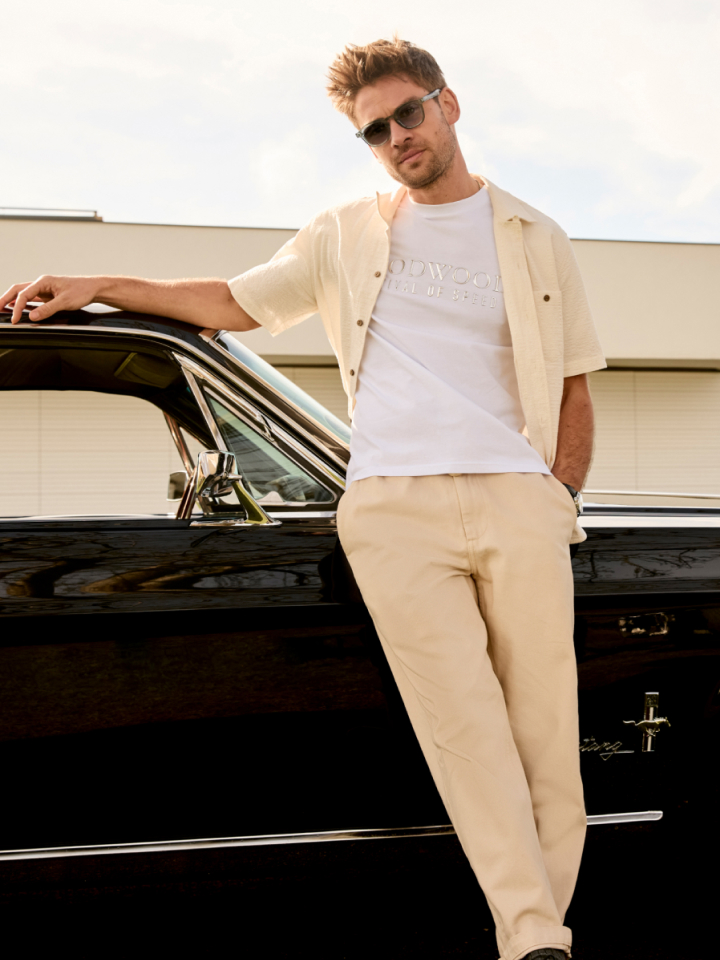Axon's Automotive Anorak: Motoring's greatest alloy wheels
Tucked away in one of the quieter aisles at last week’s Retromobile in Paris was an overlooked but fascinating display of turbocharged Renault passenger cars, gathered together to mark the 40th anniversary of the French manufacturer’s first venture into turbocharging with its Formula 1 GP cars.

Clustered tightly together on a small stand was a pristine example of each of Renault’s early turbocharged performance petrol models, spanning the muscle-bound mid-engined 5 Turbo, through to the 18 Turbo, 11 Turbo, 5 ‘Supercinq’ GT Turbo, 25 Turbo, 21 Turbo, Alpine GTA Turbo, and uber-scarce Safrane Bi-Turbo.
Studying these now rare-to-see mainstream blown Renaults, it struck me what a great job Le Regie had done in dressing-up these range-topping models to distinguish them from their lesser, regular baguette-et-beure brethren, with each Turbo derivative having carefully considered stylish alloy wheels, unique to that model.
The 18 Turbo’s distinctive and dramatic centre-split stylised alloys, for example, made this usually humdrum Renault saloon actually look quite stylish and sporty. Like a quality pair of shoes, a set of decent eye-catching alloy wheels can make a huge difference to a car.

Porsche discovered this in the late 1960s when first bolting a set of the now-iconic Fuchs alloys onto a 911 to replace the dull standard steel wheels and VW-type hubcaps. Thousands of owners of Mini Coopers, Lotus Cortinas and Jaguar E-types also enhanced the appearance of their cars in the 1960s by swapping the regular steel wheels for some sporting Minilites.
Bugatti realised the advantages of alloys even earlier, way back in 1924 on the first of its celebrated Type 35 Grand Prix racers, with the benefit of reduced weight, aided by the enhanced strength and aesthetic appeal. The huge alloys fitted to Bugatti’s subsequent masterpiece, the majestic Type 41 Royale of 1927, must still rank as one of the greatest road car wheels of all time.
In these more modern times, we are now spoilt for choice with a selection of great alloy wheels, often looking better than the car on which they are bolted! Here are seven sets of my personal favourite alloys, and do feel free to let us know which alloys you favour…

Renault 5 Gordini/Alpine ‘Computer Disc’:
These highly polished, highly distinctive ‘1970s computer disc’ alloys were strapped to the lively hot hatch Gordini (Alpine on the Continent) version of the best-selling Renault 5 in the late 1970s. Renault also fitted an enlarged version of the same alloys to its 1970s Alpine A310 V6s, plus the very last of the legendary A110 Berlinette SX models.
Alfa Romeo 105-Series GTA ‘Telephone Dial’:
First seen on Alfa Romeo’s rapid racing GTA Bertone coupes in the late 1960s to reduce weight, evolutions of these stylish ‘telephone dial’ alloys have gone on to grace many other Alfa models, the most extreme being fitted to the 147 and 156 GTA performance derivatives, plus the beautiful 8C, 4C and some recent Giulia models.
Volkswagen Golf GTI MK I ‘Campaign Alloys’:
By 1983 VW’s once-dominant Golf GTIwas coming under increasingly tough competition from a raft of other ‘GTI wannabe’ mid-size hot hatches. With the bigger and flabbier MK 2 Golf still waiting in the wings to be launched, Volkswagen wisely released the special run-out ‘Campaign’ Golf GTI to keep the sales of the model buoyant. Easily identifiable by their distinctive ‘P’ cut out alloys (P for Pirelli, the GTI’s OE tyre), the Campaign Golfs sold like hot cakes, and are now highly sought today.
Citroen SM ‘Magnesium’:
Citroen’s long, low and wide basking shark GT always cut a dash in any colour, even with its standard but unfittingly bland metal hubcaps. When fitted with the stylish optional, and eye-wateringly expensive magnesium wheels, though, Citroen’s 1970s flagship was totally transformed, making this unbelievable machine even more exotic and ‘out there.’

Saab 99 Turbo ‘Inca’:
Pioneering but slightly too ‘odd’ in some people’s tastes (not mine), the image of the robust Saab 99 was transformed in 1977 when the once-great Swedish car and aircraft maker stunned the world with its hot new 99 Turbo model. Initially only available in black the UK, the combination of the 99 Turbo’s distinctive aerodynamic combi-coupe profile, with added front and rear spoilers, set many a sporting motorist’s pulse racing, all topped-off by the unique ‘Inca’ alloy wheels, exclusive to this jet-propelled rocket.
Renault Clio 16V ‘Bugatti Alloys’:
Known as the 16S (S for soupape; French for valves) in its home market, the first truly ‘hot’ version of the original Renault Clio came equipped with one of the best-looking sets of alloys ever to be fitted to a three-door baby bombshell. Whether the early Clio 16V’s complex polished alloys were inspired by those of the Bugatti Type 41 and 57 is unknown, but they certainly did a great job of lifting the appearance of this rather dumpy looking hatchback into something truly desirable. The unique gold-coloured multi-spoke alloys of the subsequent Clio Williams models weren’t too bad either, though not a patch on the first 16V model’s wheels.
Lancia Delta Integrale EVO:
When first revealed in 1979, most versions of the stylish but boxy Giugairo-styled Lancia Delta were already graced with simple but elegant multi-spoke alloy wheels. As hotter sporting versions of the Delta evolved, the Lancia’s alloys became less subtle and more aggressive, culminating in the ultimate EVO version of the all-wheel-drive Integrale, with these busy but oh-so-purposeful alloys, which look especially good on the Delta-based Hyena coupe, built in very limited number by Zagato in the early 1990s.
axon's automotive anorak































































